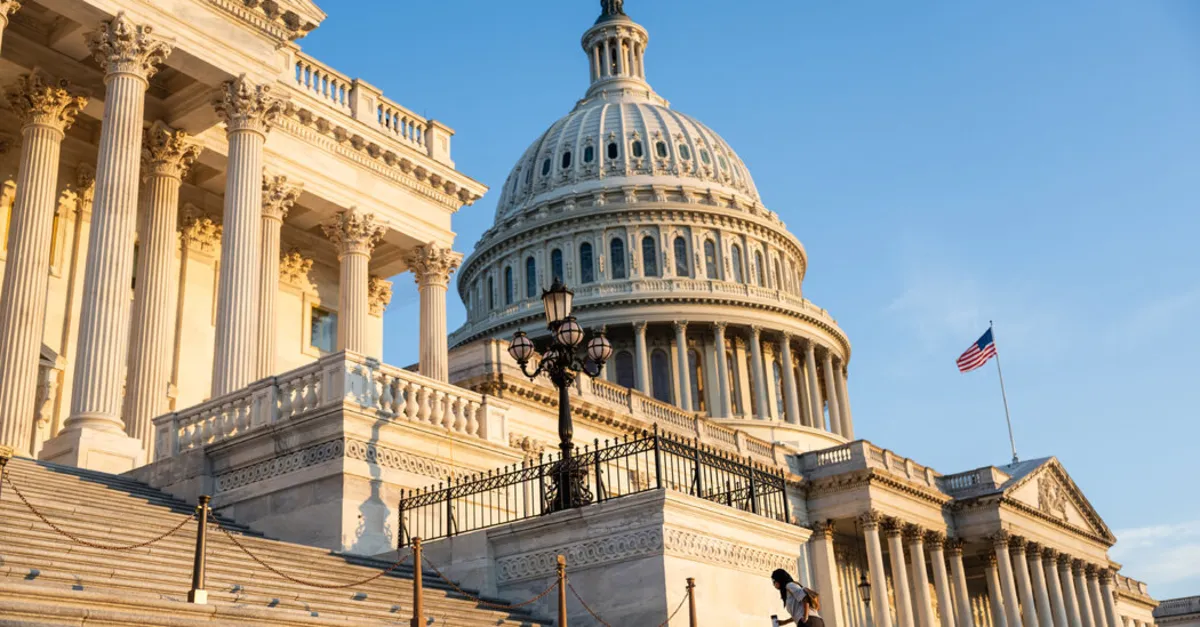
On Thursday morning, Representative Hakeem Jeffries, the minority leader and Democrat of New York, took center stage to delay the vote on a contentious bill by utilizing his prerogative as a leader. In a passionate address that extended well beyond his allotted one minute, he described the legislation as a “disgusting abomination” that would have detrimental effects on countless Americans.
Starting his remarks before 5 a.m. Eastern time, Mr. Jeffries dedicated a significant portion of his speech to reading testimonials from individuals who rely on Medicaid. These personal stories highlighted the real fears that cuts to the program could drastically alter their lives. As the vote approached, the stakes were high for House Speaker Mike Johnson, who could afford only a few defections among Republicans in favor of advancing the bill. The proposed legislation includes a staggering $4.5 trillion tax cut, increased funding for military and border security, and a drastic $1 trillion reduction in Medicaid, along with cuts to food assistance programs for the impoverished.
As dawn broke, chaos reigned on the House floor. A small group of Republicans openly opposed the measure, while several others withheld their votes, leaving Mr. Johnson scrambling for support amid unified Democratic resistance. On Wednesday, he had spent the day at the Capitol attempting to persuade holdouts, while former President Donald Trump engaged with some of them at the White House in a bid to secure votes. However, by the early hours of Thursday, the necessary votes to push the bill forward remained elusive, particularly from a faction of fiscally conservative Republicans concerned about the bill's overall cost.
Mr. Trump expressed his frustration with the situation in a social media post, questioning the delay from Republican lawmakers and warning that “MAGA IS NOT HAPPY, AND IT’S COSTING YOU VOTES!!!” In the hours leading up to the vote, some Republicans who had initially defected indicated they were ready to support the bill, highlighting the deep divisions that had characterized its journey through Congress. Mr. Johnson, however, maintained that no deals were made to secure these votes, insisting that the holdouts simply required more information regarding amendments made in the Senate.
The Senate's version of the legislation, which passed with a narrow margin, intensified existing rifts within the party. Fiscal conservatives pushed for even deeper cuts to address deficits, while lawmakers facing potential re-election challenges resisted sweeping reductions to popular programs like Medicaid and the Supplemental Nutrition Assistance Program (SNAP). Representative Chip Roy from Texas, a member of the Freedom Caucus, voiced discontent with the Senate's added measures that increased the bill's cost and impact on national debt, stating, “The Senate doesn’t get to be the final say on everything. We’ve got to work this out.”
In response to the unfolding events, Democrats have strategically positioned themselves to showcase a united front against the bill. Representative Seth Magaziner of Rhode Island criticized his Republican colleagues, stating, “This is what we mean when we say the Republican Party has turned into a cult,” referring to the bill's potential impacts on their constituents. Representative Katherine M. Clark of Massachusetts highlighted the contradictions in supporting a measure that would harm programs like Medicaid, particularly for vulnerable Republicans like Representative David Valadao of California, who faced scrutiny for voting to advance the bill.
Using a parliamentary tactic known as a “magic minute,” Mr. Jeffries extended his speaking time to make a compelling argument against the bill. He urged lawmakers to consider the negative ramifications of the proposed cuts, characterizing the legislation as “an extraordinary assault on the health care of the American people.” Despite addressing a mostly empty chamber, Mr. Jeffries’ remarks resonated with his Democratic colleagues, who rallied behind him in support.
As the vote loomed, Speaker Johnson prepared to address the chamber, anticipating his remarks would be significantly shorter than those of Mr. Jeffries. With Trump eager to sign the bill before the July 4 celebrations, the administration emphasized the need for the legislation to fulfill campaign promises and advance its domestic agenda. The proposed bill not only aims to cut taxes by $4.5 trillion but also seeks to increase military funding and border security, all while raising concerns about its potential impacts on the federal deficit.
Despite Trump's assurances of economic growth following the passage of the bill, public opinion remains skeptical. Recent polls show only 29 percent of voters support the legislation, with nearly half expecting it to negatively affect their families. As Democrats prepare to leverage these sentiments in their midterm campaigns, they are already planning advertisements targeting vulnerable Republicans who supported the bill. They aim to replicate their successful strategy from 2018, which centered on Republicans’ attempts to dismantle the Affordable Care Act.
In summary, the ongoing debate surrounding this significant piece of legislation underscores the stark divisions within the Republican Party and the potential repercussions for lawmakers as they navigate the complexities of Medicaid cuts and other domestic issues. As the vote approaches, all eyes will remain on the House floor, where the fate of the bill hangs in the balance.